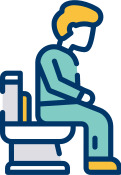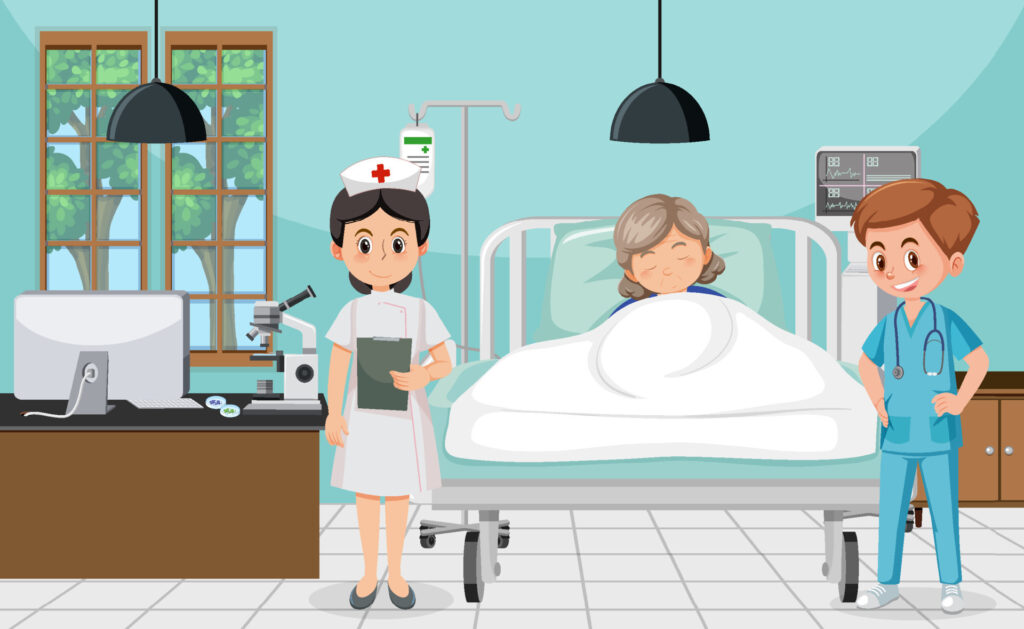Made Stress-Free Reliable Hassle-Free Convenient Pocket friendly
Request a call back
The surgery you need is
just a click away


21K +
Consultations

1180
Surgeries

100+
Partner Hospitals

10000+
Hassle-free Consultation

5000+
Smooth surgeries

500+
Expert Doctors

100+
Trusted hospitals

Affordable Hernia Treatment in Pune
- 40 Min Procedure
- Free Pick Up & Drop
- Keyhole Surgery
- Post Surgery Assistance
- Complete Insurance Support
About Hernia
Doctors & Hospitals
Why aapkacare
FAQ
What is Hernia
A hernia is when an internal organ or tissue pushes through a weak spot or tear in the muscles or connective tissues that typically hold it in place. Hernias can develop in any part of the body, but most commonly, they occur in the abdominal area. Hernias can appear as painful bulges that gradually grow in size.

Identify the Signs of Hernia
Visible Bulge
A visible bulge or lump in the affected area
Pain or Discomfort
A mild to severe range of pain can be experienced in the affected area.
Gastrointestinal Symptoms
Hiatal hernias can lead to heartburn, acid reflux, chest pain, and difficulty swallowing.
Bowel Habits
Hernias involving the intestines can affect bowel movements, leading to constipation, diarrhea, or changes in stool consistency.
Understand the causes of Hernia
Hernias develop when a combination of muscle weakness and increased pressure on the abdominal wall. The specific causes of hernias can vary depending on the type of hernias. Some common causes of Hernia include

Chronic Straining
Chronic straining, such as chronic constipation or chronic obstructive pulmonary disease (COPD), can increase the risk of hernias.

Weakness in the Muscles
Muscles and connective tissues in the body can weaken over time due to aging, injury, or genetic predisposition.

Congenital Factors
Some people may have natural weakness in their abdominal or groin muscles from birth, which makes them more vulnerable to hernias.

Previous Surgical Incisions Surgical incisions can create weakness in the abdominal wall, making Hernia more likely to occur at or near these incisions.

Chronic Straining
Chronic straining, such as chronic constipation or chronic obstructive pulmonary disease (COPD), can increase the risk of hernias.

Obesity
Excess body weight can strain the abdominal muscles and increase the risk of hernia development.

Identify the Signs of Hernia
- HOW
- WHAT
How can Hernia be prevented?
Maintain a Healthy Weight: Excess body weight can strain your abdominal muscles and increase the risk of hernia development.
Avoid Straining: Chronic straining during bowel movements due to constipation can increase abdominal pressure and the risk of hernias.
Quit Smoking: Smoking has been linked to an increased risk of hernia development.
Strengthen Your Core: Engage in exercises that strengthen your core muscles.
Balanced Diet: A proper diet can help you prevent the development of Hernia.
What happens if Hernia is left untreated?
Left untreated, Hernia can lead to various complications and potentially become a medical emergency. The severity of these complications potentially depends on the type of Hernia and individual factors, but here are some potential consequences of untreated hernias:
- Increased Pain and Discomfort: Initially, a hernia may cause discomfort or mild pain. The pain and discomfort can worsen without treatment, making it increasingly difficult to perform daily activities.
- Enlargement of the Hernia: Hernias tend to get more prominent and more noticeable over time. As the hernia sac continues to protrude through the weak area in the muscle or tissue, it can become more apparent and cause more significant bulging or swelling.`
- Strangulation: One of the most severe complications of a hernia is strangulation, which occurs when the blood supply to the trapped organ is. This can lead to tissue damage and necrosis (tissue death), a medical emergency.
- Obstruction: In some cases, a hernia can become obstructed, which traps a portion of the intestine or other abdominal contents.
- Infections: Hernias can sometimes become infected, mainly if they involve an organ or tissue that has pushed through the abdominal wall.
Compromised Organ Function: If a hernia involves an organ, such as the intestine, and is left untreated, it can eventually lead to impaired organ function.
Benefits of Laparo Treatment
|
EXPERIENCE
|
OPEN SURGERY
|
LAPARO SURGERY
|
|---|---|---|
|
CUT
|
LONG
|
MINIMAL
|
|
PAIN
|
PAINFUL
|
MILD
|
|
STITCHES
|
MULTIPLE
|
MINIMAL
|
|
HOSPITAL STAY
|
LONG
|
ONE DAY DISCHARGE
|
|
RECOVERY
|
SLOW
|
FAST
|
About our Doctors & Hospitals
all your queries.

To consult our skilled surgeons for any problems or to undergo laparo Hernia surgery, visit the nearest Hernia hospital in Pune with Aapkacare Health. You can also schedule an online appointment and speak with the doctor live on video. Make an appointment at Aapkacare Health to speak with the top Hernia surgeons in Pune. The Pune Aapkacare Health multi-speciality hospital for laparo Hernia are sanitised, COVID-safe, and well-equipped. Book an appointment for the most advanced laparo Hernia procedure in Pune.
Consult with the most experienced surgeons in Pune!

Dr.Mahender M
18 years experienced

Dr.Balakumaran
15 years experienced

Dr.Sudhakar
9 years experienced

Dr.Vijay Bhaskar
11 years experienced
Find the Best Hospital in Pune

Varam

VSR Hospital

Sivam Ortho and Speciality Hospital

RR

STN
Our Aim is to keep you healthy
Receive Expert Care
We find the finest doctors & facilities for your procedure

Zero Paperwork
We take care of all the paperwork so that you can relax

Hassle-Free Insurance
We work directly with your insurance provider for fast approvals

Get Home Sooner
Our advanced procedures help you recover faster and more safely

Are you worried about the cost of Hernia treatment?

Your journey with Aapka Care Health


You might have hernia if you observe a bulge or swelling close to your stomach, abdomen, or groin. You should see a doctor right away to get evaluated.
Hernia can only be adequately treated by surgical correction. The size of your hernia and the severity of your symptoms will determine whether you require surgery. Simply keeping an eye on your hernia for further developments may be suggested by your doctor.



